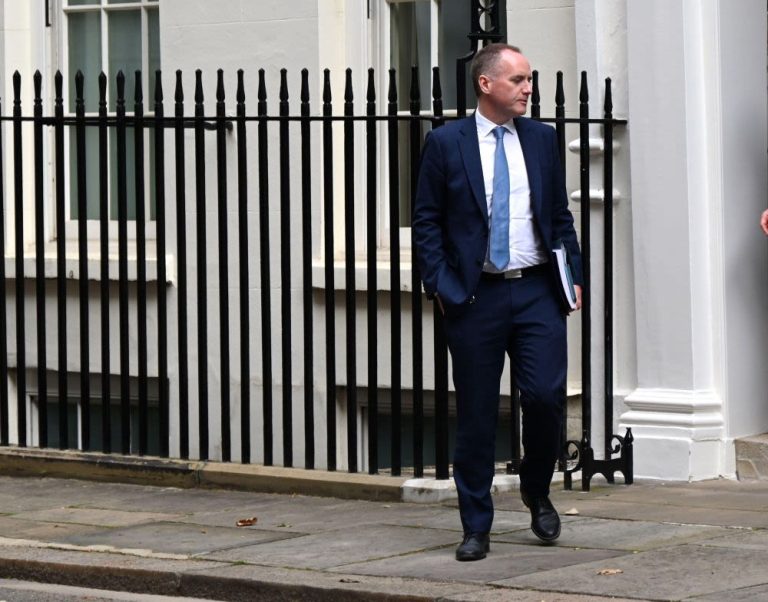A radical shake-up of EU trade policy
This week, EU commissioners signed off on unprecedented measures to “reindustrialise Europe” by slapping a 50 percent tariff on all steel imports and cutting tariff-free quotas by 44 percent. For Britain’s steelmakers, who ship 1.9 million tonnes of steel annually to the EU (some 78 percent of UK exports), this amounts to a dramatic gut-punch.
Under the new regime:
- All steel imports into the EU now face a 50 percent duty (up from 25 percent).
- Tariff-free import quotas fall from 32 million tonnes to 18 million tonnes.
The UK steel industry on the brink
Gareth Stace, director-general of UK Steel, warns of “perhaps the biggest crisis the UK steel industry has ever faced.” Combined with sky-high energy prices—Britain has the most expensive industrial electricity among major economies—and a global wave of protectionism, the sector truly teeters on collapse.
Recent blows include:
- US tariffs of 50 percent on American steel imports since May, prompting fears of redirected Asian exports entering the UK.
- The April nationalisation of British Steel after its financial collapse, underscoring the sector’s fragility.
As EU measures redirect millions of tonnes of cheap Asian steel away from the bloc, Britain risks becoming a dumping ground. Stace warns that, “The probability of the EU’s measures redirecting millions of tonnes of steel towards the UK could be terminal for many of our remaining steel companies.”
Counting the costs of energy and tariffs
British steelmakers face a deadly combination:
- Energy costs: High gas and electricity prices have made UK production uncompetitive.
- Global quotas: Reduced access to the EU market shrinks outlets for British steel.
- US duties: Additional tariffs by the US threaten to blow back cheaper imports onto British shores.
Together, these forces have driven margins into the red, left plants underutilised and prompted calls for urgent government intervention.
Government response and calls for action
Industry minister Chris McDonald has pledged to “push the European Commission for urgent clarification” and to protect the critical trade flows between the UK and EU. He points to secured preferential access for UK exporters to the US market and ongoing exploration of “stronger trade measures” to shield domestic steel producers from unfair competition.
Yet, Metal chiefs demand more than diplomatic notes. UK Steel’s leadership insists the government must:
- Negotiate specific country quotas for UK exports to the EU.
- Implement domestic anti-dumping measures to counter cheap steel inflows.
- Support investment in green steel technologies to lower energy costs.
Reindustrialisation versus industry collapse
The EU argues that higher tariffs will revive moribund European steel mills by incentivising on-shore production. But the unintended effect may be to funnel a surge of Asian steel through the UK before it can reach the EU—worsening the plight of British producers.
UK Steel urges a balanced approach: fair competition rules that apply uniformly across the continent, coupled with targeted support for modernising blast furnaces and electric arc furnaces to reduce reliance on volatile gas markets.
Looking beyond protectionism
While immediate emergency measures are needed, industry experts stress that long-term solutions must focus on:
- Decarbonisation: Shifting to hydrogen and renewable-powered steelmaking to slash energy dependency.
- Digitalisation: Adopting advanced manufacturing and AI-driven process optimisation to boost efficiency.
- Skills and investment: Developing a new generation of metallurgists and securing private-public funding for R&D.
Without these structural reforms, even tariff walls may prove insufficient to safeguard an industry that employs tens of thousands and underpins critical supply chains—from automotive to construction.
High stakes for the UK economy
Steel is a bellwether for heavy industry. Choices made today will ripple across manufacturing, infrastructure projects and export markets. The government’s next steps—whether to secure bespoke EU quotas, introduce domestic levies or accelerate green steel initiatives—will determine if Britain can weather this “biggest threat ever” or if its 200-year steel-making legacy will finally falter.





